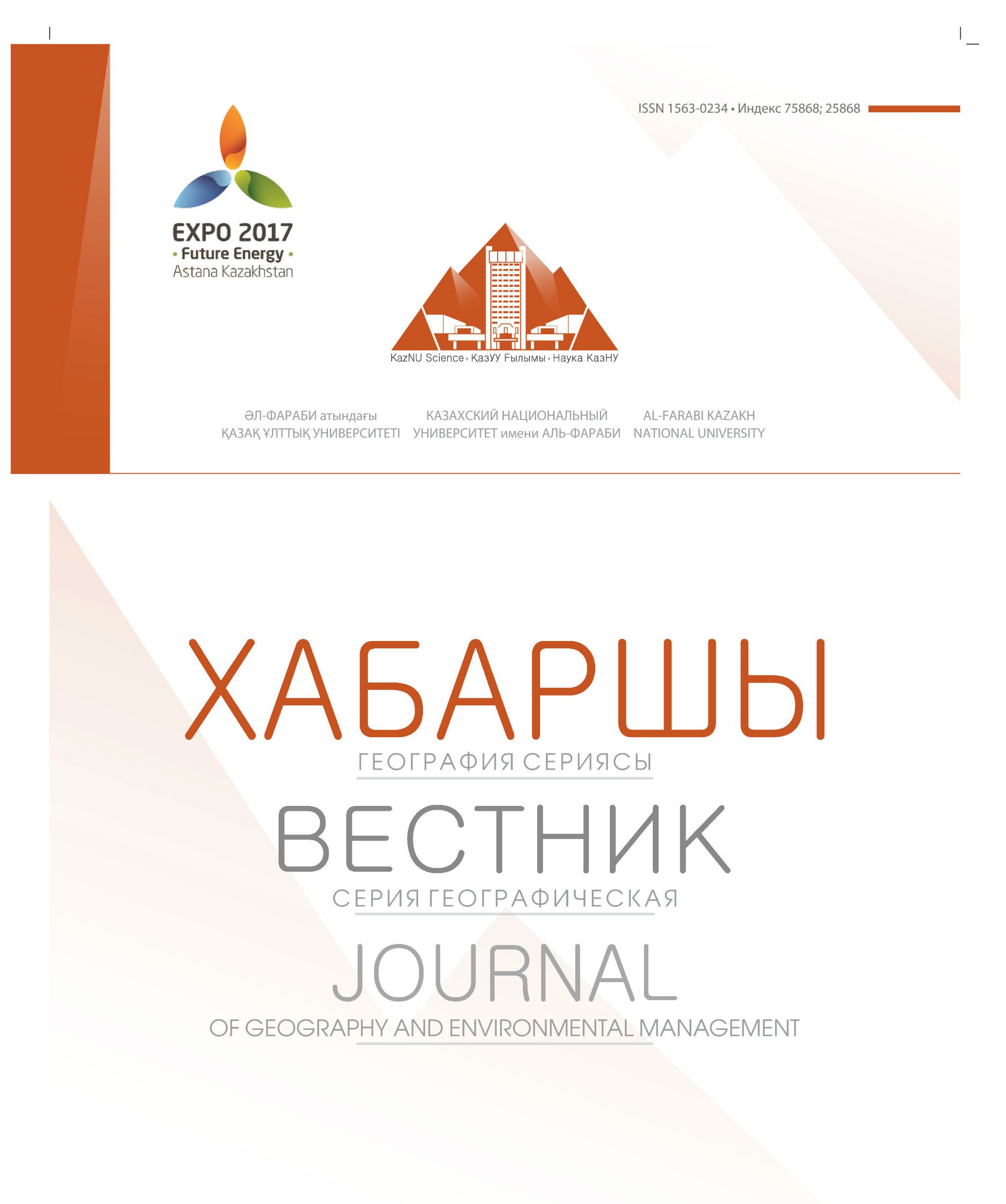Определение методом интерполяции интенсивности осадков (R-фактора) при размыве почвы
DOI:
https://doi.org/10.26577/JGEM.2019.v52.i1.011Аннотация
Поскольку процесс размыва почвы является одним из интенсивных тенденций, оказывающих
существенное негативное влияние на земельные ресурсы, а также народное хозяйство, в
настоящее время необходима работа по определению приоритетных видов эрозионных
процессов, расчету процесса размыва почв, его оптимизации и организации профилактических
мероприятий. Одним из главных факторов, влияющих на размыв почвы, является количество
осадков (R). Река Шежин-1 простирается с севера на юг в 72 км, с запада на восток в 33 км. В
связи с этим, выпадение осадков происходит с юга на север. При выпадении осадков 300мм в
год на 16% южных массивов на север изменяется их значение. Эрозия почв чаще встречается в
мелкозернистых почвах, в зонах с большим количеством осадков и сильным ветром. При сильной
эрозии почв снижается плодородие почв, наносится вред засеянным семенам, ухудшается
качество пастбищных угодий сельского хозяйства. Все это наносит огромный ущерб сельскому
хозяйству. В связи с этим в данной работе уделяется внимание данной тематике и интенсивность
осадков (R-фактор) рассчитана методом интерполяции с применением ГИС технлогий, также
предложен алгоритм определения R-фактора. В результате исследования выяснилось, что
годовое количество осадков, поступающих на сельскохозяйственные угодья бассейна реки
Чижи-1, изменяется с 300 мм до 325мм.











